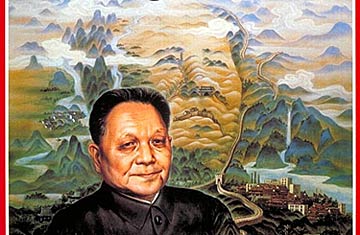
(9 of 20)
Yet Hu also told of how Mao, who did not believe in torment but in "reeducation" of his enemies, heard about an old Yanan comrade being imprisoned and tortured. "But this is fascism, not Communism!" cried Mao, and ordered punishment relaxed to house arrest.
I complimented Hu on the official confession. "The problem," he said, "had been how to assign blame yet preserve Mao's merits, though flawed." After three sessions, the Central Committee came up with the compromise that now rules Chinese thinking: there is crime and there is error, and they are different. Mao was not a criminal, said Hu. Mao was guilty of error; he had betrayed Mao Thought, contradicting himself. His merits outweighed his mistakes. Thus, the official history of disaster, the dethronement of a god.
Could terror reign once more? No, said Hu — and he was firm. A modern country needs intellectuals, scientists. This was Deng's view too. How could modernization proceed without thinking people? I persisted: Could it happen again? No, he answered. Not because of the new constitution. Not because of the transfer of power. No — because someone who puts his finger on a hot stove gets burned and will not put his finger there again. The terror, Hu assured me, could not return because the people now would not accept it.
UNTANGLING THE MESS
It was two years before the old generals could purge and remold the party. By 1978 they had brought back from disgrace Deng Xiaoping, the deftest politician among them. At the end of 1978, the reorganized Central Committee, under Deng, had repudiated the economics of the Cultural Revolution and ordered reforms. It took two more years to bring to trial and convict the Gang of Four; and in 1981 the Central Committee adopted the official confession of Communist error. It was another year before they elected, in 1982, a new Zhongyang and adopted a new constitution, the fourth since Liberation. So there is now a new ruling regime (see box, page 42).
What is going on under this new leadership is a cracking of the bones of Mao's state — which had to follow from the cracking of Mao's theories and ideas.
Let another old-guard Communist tell what he found when he was restored to power. Liao Zhili, 68, now deputy director of the State Commission for Restructuring the Economic System, was sent down from 1968 to 1978. Liao grew animated as he told of China as left by the Cultural Revolution.
"It was," he says, "madness. They believed in public ownership of everything. They wanted to eliminate all private workers. In all China there were only 150,000 private workers. They wanted the barbershops, the bathhouses, the shoemaking shops all to be state enterprises. The poorer the people, was their theory, the more 'revolutionary' they would become. We found we had 26 million people
